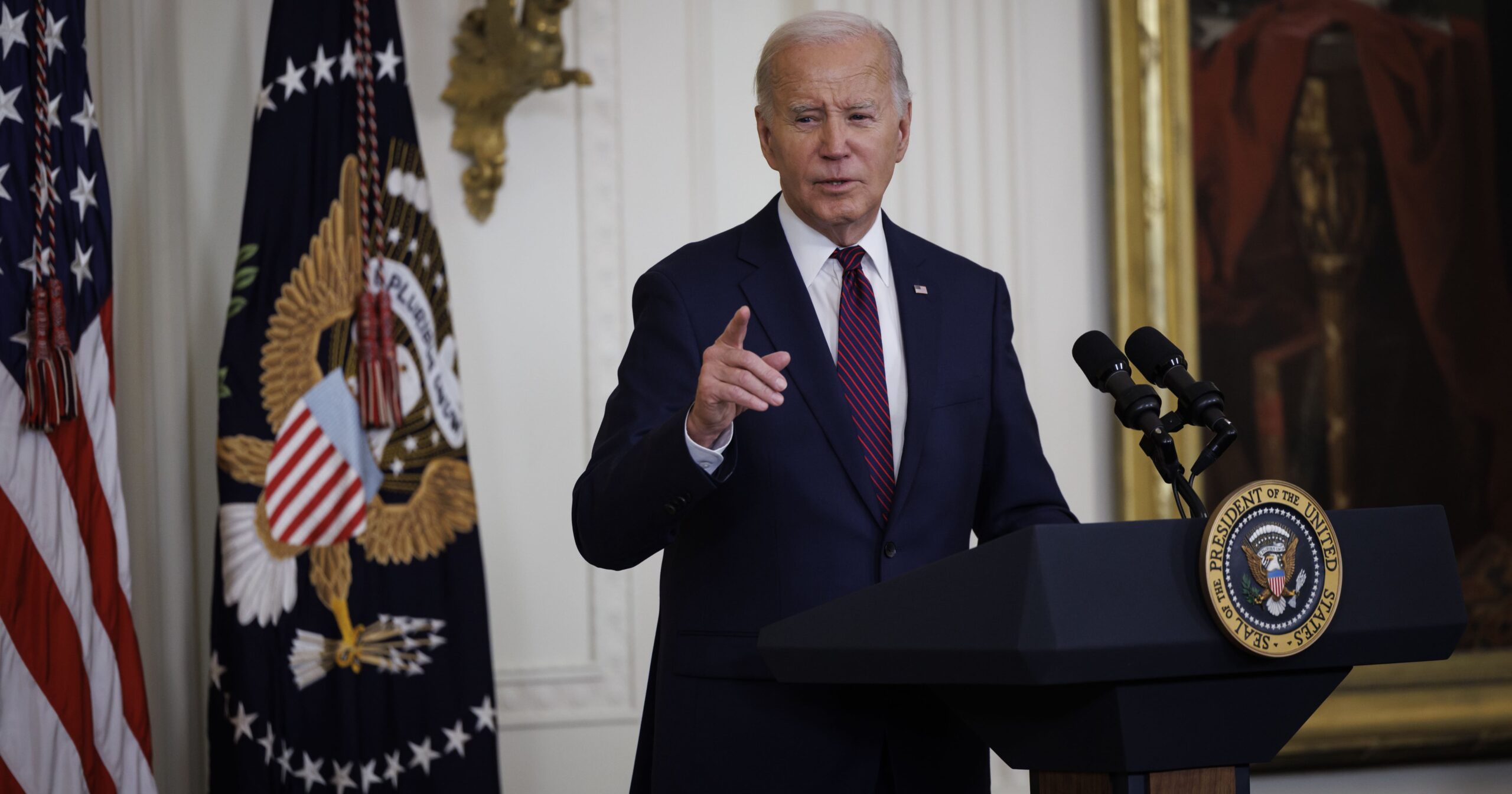
Jan. 22 marks what would have been the 51st anniversary of Roe v. Wade. In anticipation, the White House invited several journalists to sit down with members of the administration the Friday beforehand, Jan. 19, to discuss their commitment to reinstating reproductive freedoms.
As I walked through the security gates and onto the snow-covered grounds off Pennsylvania Avenue, I wasn’t sure what to expect from the day’s briefings. But I felt optimistic, eager to hear what some of the president’s closest advisers had to say.
They started with statistics — the jarring kind that we’ve been hearing ever since June 24, 2022, when the Supreme Court made the decision to overturn Roe. As of now, more than 20 states have extreme abortion bans in effect. Twenty-seven million women of reproductive age now live in states with abortion bans. And more than 380 state bills restricting access to abortion were introduced just last year. Those are a few of the numbers Jennifer Klein, director of the White House Gender Policy Council, rattled off to the group.
Then came the plans, beginning with the president’s fourth task force meeting on reproductive healthcare access, which will convene today, Jan. 22. Various agencies are also announcing new actions to protect access to reproductive health care.
Those actions fall in three main buckets: protecting access to contraception, reinforcing birthing people’s rights to emergency medical care, and garnering support for medication abortion.
For starters, the Departments of the Treasury, Labor, and Health and Human Services (HHS) will be issuing new guidance to ensure the rights issued by the Affordable Care Act are being enforced and women under the ACA have access to a variety of contraceptives at no cost. HHS is also announcing a “comprehensive plan” to educate patients and healthcare providers about emergency care rights guaranteed under EMTALA, or the Emergency Medical Treatment and Labor Act, including rights for birthing people who are experiencing pregnancy loss and other pregnancy-related emergencies. And finally HHS, the Department of Justice, and the Department of Homeland Security will report on their implementation of the 2023 Presidential Memorandum issued by President Biden, which asked these departments to “consider new guidance to support patients, providers, and pharmacies who wish to legally access, prescribe, or provide mifepristone.”
Vice President Kamala Harris also kicked off her nationwide “Fight for Reproductive Freedoms” tour on Jan. 22. It’s commencing in Wisconsin, where Harris will highlight the harms caused by state abortion bans. And on Tuesday, Jan. 23, Biden, Harris, and the first spouses will visit Virginia for a campaign stop focused on reproductive rights. This comes after Harris’s recent “Fight for Our Freedoms” college tour, in which she traveled to eight states, speaking to over 15,000 students about a range of issues, including reproductive freedom.
These efforts represent a doubling down on the reproductive rights agenda ahead of the 2024 election. Neera Tanden, a White House domestic policy adviser, called it “a cornerstone issue” in Friday’s briefing.
Unfortunately, while commendable, none of this work — not the president’s task force meeting, either of the vice president’s tours, or the upcoming campaign stops — will immediately change the way reproductive freedom is being controlled in this country. The fact is, Biden has issued at least three executive orders and one presidential memorandum in the past year to protect reproductive freedoms, including abortion and contraception. But they do not and cannot invalidate any of the state abortion or contraceptive bans already in place.
Congress is a huge part of the puzzle — and the administration knows that. As pointed out by a senior adviser to the president in our meeting last week, unless we can pass something through Congress, there will continue to be large parts of the country that do not have access to reproductive freedoms. Congress enshrining these protections in federal law is the best path forward, they told the group.
“We are happy to work with them whenever,” Klein said during Friday’s briefing, reiterating that the president has been “laser focused” on passing federal legislation.
In the meantime, states must act. From the looks of it, several have already voted to reinstate certain protections for abortion at the ballot box, including Kentucky, Ohio, Michigan, Kansas, and California. And when polled by the Associated Press, two-thirds of Americans say abortion should be legal. Will that translate to the presidential election? It’s unclear. But the Biden administration wants to make one thing clear: it is moving forward with an unapologetic fervor for reproductive freedoms. More simply: a vote for Biden means a commitment to enshrining abortion rights once again.
“On this day and every day, Vice President Harris and I are fighting to protect women’s reproductive freedom against Republicans’ dangerous, extreme, and out-of-touch agenda,” the president said in a statement released today. “We stand with the vast majority of Americans who support a woman’s right to choose, and continue to call on Congress to restore the protections of Roe in federal law once and for all.”
His statement offers a strong juxtaposition to leading Republican presidential nominee, former president Donald Trump, who recently bragged about playing a role in the fall of Roe.
“For 54 years, they were trying to get Roe v. Wade terminated, and I did it,” Trump said during a recent Fox News town hall. “I’m proud to have done it.”
As I walked off the White House grounds last week, after hours of Q&A, I didn’t feel the sense of relief that I hoped I would. The truth is, the overturn of Roe has left a seismic impact on our country (just read one of the countless abortion stories that have hit the news cycle this past year and half). Offsetting that impact will take a lot more than a Biden re-election. But the administration believes it’s a start.
